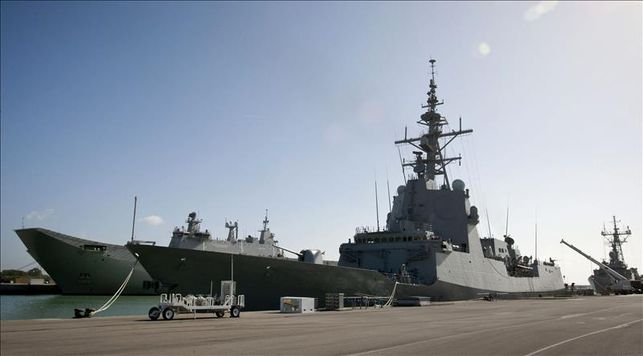28.08.2014 - 15:34
The Atlantic Council, one of the most prominent US think tanks analysed the geostrategic impact of the possible independence of Scotland and Catalonia from a military standpoint, in an article titled “The Military Implications of Scottish and Catalonian Secession” that was posted yesterday on its website. The author, James Hasik, based his analysis on the assumption of a high probability of a yes vote on the question of independence in Catalonia and a no vote in Scotland.
The American think tank warned NATO members they should not treat either possibility lightly, but believes that ‘the independence of Catalonia would pose fewer military problems for the alliance than that of Scotland’. Both Catalonia and Scotland wish to join the European Union and NATO, but ‘both organizations have warned that accession is not remotely automatic, and depends on the agreement of every existing member states’, writes Hasik, adding the reminder of Macedonia’s exclusion from these bodies as a result of Greece’s veto.
According to Hasik, Spain will have a hard time thwarting a determined push toward self-determination by Catalonia. But he also questions whether other states may view the integration of Catalonia in Europe as dangerous because of the risk that it could awaken new secessionist movements on the continent.
Regarding Scotland, Hasik believes it would be implausible that London would accept Scotland’s independence and not allow it to be integrated into NATO. ‘A currency union may be off the table, but such dickering over the serious business of defence would be unacceptable’, he writes.
After analysing the strategic positions of British nuclear submarines in Scottish waters, Hasik questions the contribution that Catalonia and Scotland would make if they were admitted to NATO. Hasik echoes the opinion of defence and security expert Anne Marie Slaughter, formerly with the US Department of State, who stated a few months ago that she believes an independent Catalonia and an independent Scotland would do a very good job of defending themselves. According to Hasik, the consequences for NATO would be different in both cases. He quotes an unnamed former defence official who, somewhat hyperbolically, told him that ‘the Scots think the defence is a free good’, whereas, according to Hasik, Catalonia’s case is different.
‘Catalonia has 7.3 million people, with more than $300 billion in GDP. Spending just 1.6% of that on defence provides over $4.5 billion annually, or roughly the budget of Denmark, which has well-regarded and efficient armed forces. Catalonian military plans are more vague, but so far, they emphasize the navy. With excellent ports in Barcelona and Tarragona, Catalonia is well-positioned as a minor naval power’, argues Hasik.
More information in Catalan: The Atlantic Council: una veu amb una influència excepcional en la política americana



